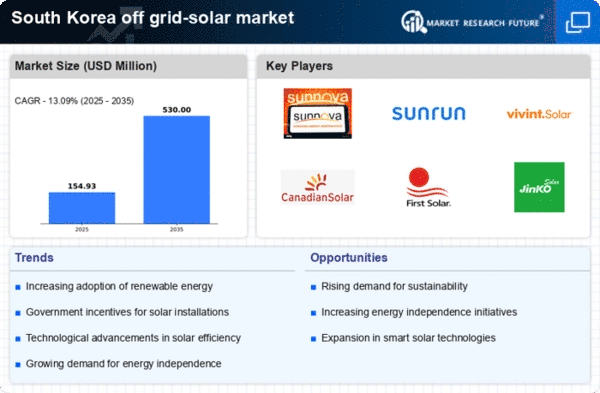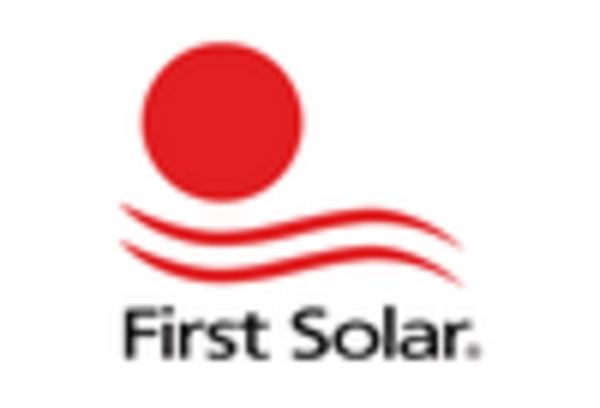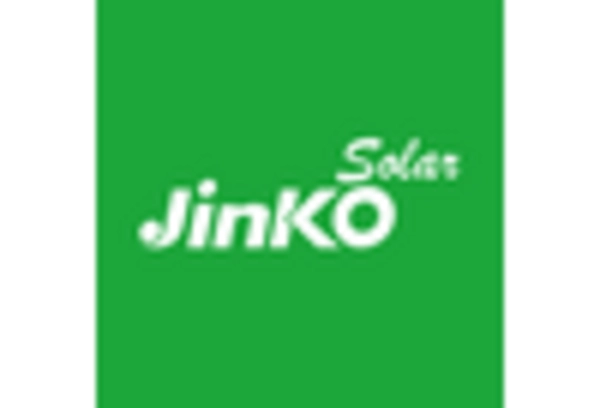Increasing Energy Independence
The off grid-solar market in South Korea is experiencing a surge in demand as individuals and communities seek greater energy independence. This trend is driven by a growing awareness of energy security, particularly in remote areas where grid access is limited. The government has recognized this need and is promoting off grid solutions through various initiatives. As of 2025, approximately 15% of households in rural regions are utilizing off grid-solar systems, reflecting a significant shift towards self-sufficiency in energy production. This movement not only empowers consumers but also reduces reliance on traditional energy sources, thereby enhancing the resilience of local economies. The off grid-solar market is likely to continue expanding as more people prioritize energy autonomy and sustainability.
Supportive Regulatory Frameworks
The regulatory environment in South Korea is becoming increasingly favorable for the off grid-solar market. Recent policy changes have streamlined the permitting process for solar installations and provided financial incentives for consumers. The government has set ambitious renewable energy targets, aiming for 20% of total energy consumption to come from renewable sources by 2030. This commitment is likely to bolster the off grid-solar market, as it encourages investment in solar technologies. Furthermore, local governments are offering subsidies and tax breaks for off grid installations, making it more financially viable for consumers. As these supportive frameworks evolve, they are expected to catalyze further growth in the off grid-solar market.
Rising Costs of Conventional Energy
The escalating costs associated with conventional energy sources are propelling the off grid-solar market in South Korea. As fossil fuel prices fluctuate and electricity tariffs rise, consumers are increasingly looking for alternative energy solutions. The average electricity price has seen an increase of approximately 10% over the past two years, prompting households and businesses to consider off grid-solar systems as a viable option. This shift is particularly evident in areas where grid electricity is both expensive and unreliable. The off grid-solar market is thus positioned to benefit from this economic pressure, as more consumers seek cost-effective and sustainable energy alternatives. The potential for long-term savings on energy bills further incentivizes the adoption of solar technologies.
Environmental Concerns and Sustainability
Growing environmental awareness among South Korean consumers is significantly influencing the off grid-solar market. As climate change and pollution become pressing issues, individuals and businesses are increasingly motivated to adopt sustainable energy practices. The off grid-solar market is benefiting from this shift, as solar energy is perceived as a clean and renewable alternative to fossil fuels. Surveys indicate that over 70% of consumers are willing to invest in renewable energy solutions, reflecting a strong commitment to environmental stewardship. This trend is likely to continue, as educational campaigns and government initiatives further promote the benefits of solar energy, thereby expanding the market for off grid solutions.
Technological Innovations in Solar Solutions
Technological advancements are playing a pivotal role in shaping the off grid-solar market in South Korea. Innovations in solar panel efficiency, battery storage, and smart energy management systems are making off grid solutions more accessible and effective. For instance, the latest solar panels can achieve efficiencies exceeding 22%, significantly enhancing energy output. Additionally, improvements in battery technology are allowing for better energy storage, which is crucial for off grid applications. As these technologies become more affordable, the off grid-solar market is likely to attract a broader consumer base. The integration of smart technologies also enables users to optimize their energy consumption, further driving the appeal of off grid solutions.
















